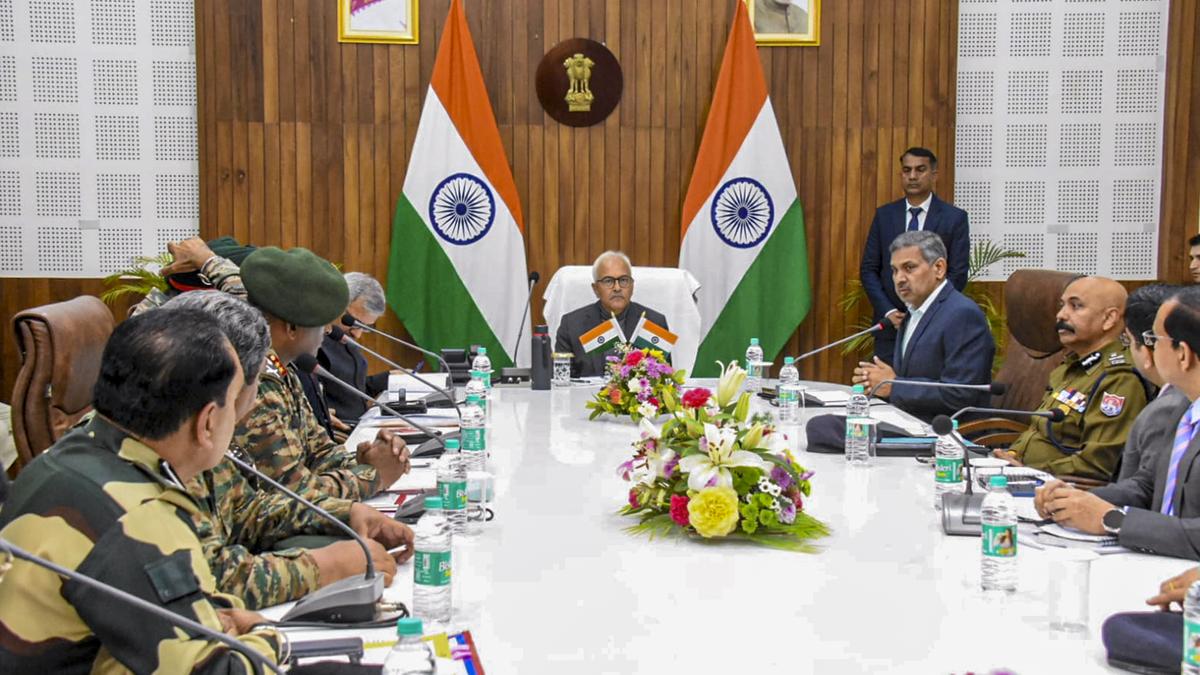 |
|
The recent appointment of Ajay Kumar Bhalla as the Governor of Manipur has immediately brought a renewed focus on the state's ongoing security crisis. His swift action in convening a security review meeting just a day after assuming office underscores the gravity of the situation. The meeting, attended by key security officials including the Security Adviser and the Director-General of Police, notably excluded the Chief Minister, N. Biren Singh, highlighting the potential for political friction even within the state's response to the crisis. A critical suggestion from Governor Bhalla was the utilization of the National Security Act (NSA) of 1980 against those deemed responsible for instigating or perpetuating the violence. This controversial measure allows for detention without trial for a full year, reflecting the perceived need for swift and decisive action to curb the escalating unrest. The decision to employ such a powerful legal tool, however, raises significant concerns about potential human rights violations and the balance between security and due process. This will undoubtedly be a point of intense scrutiny and debate in the coming weeks and months.
Beyond the immediate security measures, Governor Bhalla also emphasized the critical need to address the root causes of the conflict, particularly focusing on the lack of opportunities for disillusioned youth. He called for the creation of employment opportunities to deter young people from joining insurgent groups. This proactive approach recognizes the socio-economic factors that fuel instability and conflict. However, the success of such initiatives would depend on effective implementation, addressing issues such as corruption and ensuring equitable access to resources and opportunities across different communities within Manipur. Without addressing these deep-seated systemic problems, any security-focused solution will likely prove insufficient in the long run.
The security review meeting also highlighted specific incidents and actors exacerbating the conflict. The Central Reserve Police Force (CRPF) and the Border Security Force (BSF) reported violations of ceasefire ground rules by the Pambei faction of the United National Liberation Front (UNLF), a Meitei insurgent group that had previously signed a peace agreement. This underscores the fragility of peace agreements and the complex dynamics of insurgent groups operating within and across borders. The ongoing violence in Yaingangpokpi (YKPI), a strategically significant buffer zone, further illustrates the precarious security situation. The area has witnessed numerous instances of firing and clashes between different communities, driven by the contentious placement and subsequent removal of a CAPF camp, illustrating the volatile nature of even seemingly minor actions in these highly sensitive zones. The situation in YKPI highlights the complex interplay of strategic positioning, community grievances, and the potential for escalation.
The conflict is deeply rooted in the ethnic tensions between the Meitei and Kuki-Zo communities, and the Governor's meeting acknowledged the various flashpoints. The clashes are not simply spontaneous outbursts of violence; they are fueled by longstanding grievances, historical injustices, and a lack of trust between the communities. The strategic locations of insurgent groups' camps in and around areas such as YKPI, and the presence of armed cadres from groups with peace agreements roaming freely during protests as seen in Kangpokpi, underlines the complex security challenge the state faces. The response to the events in Kangpokpi, where the SP was injured during a protest turned violent, further emphasizes the difficulties in maintaining order when protests become leaderless and armed groups are involved, challenging even the authority of the state's security personnel. The dismantling of Kuki-Zo bunkers in Phaimol, while a temporary security measure, is unlikely to resolve the underlying issues driving the conflict. Ultimately, a comprehensive approach that addresses the root causes of the conflict is needed, not just a military response.
A long-term solution requires a multi-pronged strategy that tackles the immediate security concerns while also addressing the deeper political, social, and economic factors that fuel the conflict. This means not only deploying security forces to maintain order but also investing in peace-building initiatives, fostering dialogue between communities, and addressing the underlying issues of inequality and marginalization that fuel resentment and violence. The creation of sustainable employment opportunities and investment in education and infrastructure are crucial for long-term stability. Without tackling these fundamental issues, any short-term security measures will be insufficient to achieve lasting peace and security in Manipur. The Governor's focus on both immediate security measures and long-term solutions is a promising sign, but effective implementation and cooperation from all stakeholders are essential for success. The international community also has a role to play in supporting mediation efforts and providing humanitarian aid to those affected by the violence.
